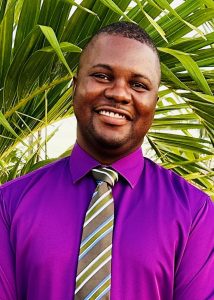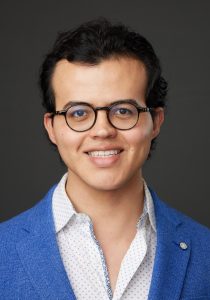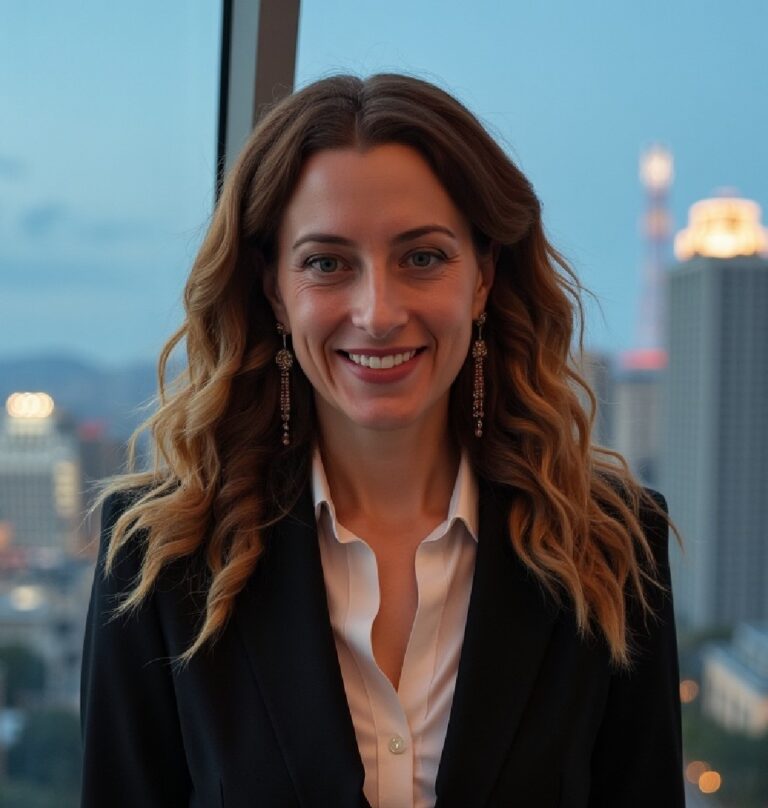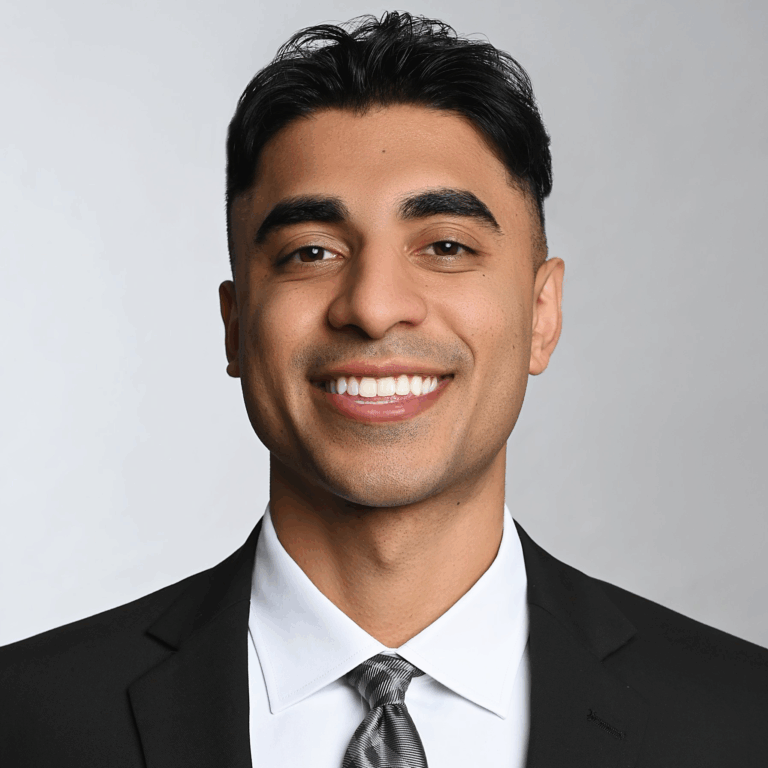Guyana Residents, Emory Benefit from Partnership
Coming to the United States for a month of immersive training this fall was revelatory for Guyana natives Iliana Persaud, MD, and Nathel Quinn, MD. The two diagnostic radiology residents went back home determined to improve the state of health care there.
Thanks to support from RAD-AID International, the pair spent a month apiece at Emory University Hospital late this year. Dr. Persaud completed her residency in early November and Dr. Quinn is in his second year.
Guyana, located on the northeastern coast of South America, ranks poorly in healthcare indicators. Its breast cancer mortality rate, for example, is 11.2%; the rate in the U.S. is 2.5%. One factor influencing the difference is the lack of imaging resources in the few hospitals there that are routine in America.
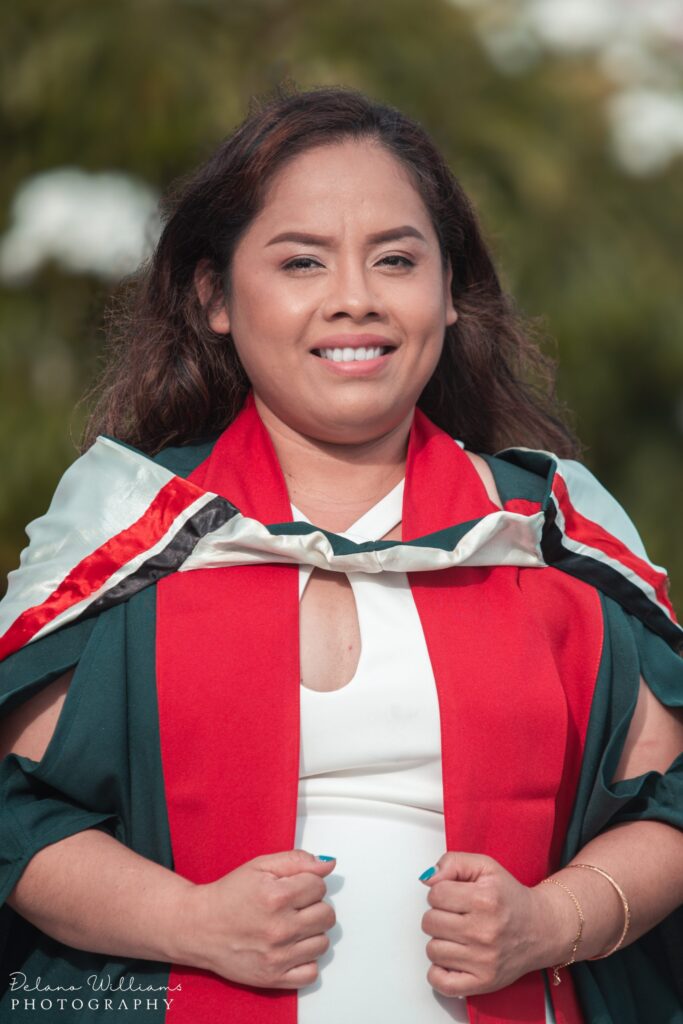
“It was a wonderful experience coming from a developing country to one of the best hospitals in the U.S.,” Dr. Persaud said. “I was able to see how a breast imaging department runs with the use of high-end equipment and software. I saw procedures like breast biopsies guided by ultrasound, mammography with tomosynthesis, and MRI, procedures that are not being done in my country. Coming to the United States and seeing lots of equipment at different breast imaging departments motivated me to improve this sector in my country.”
Dr. Quinn plans to specialize in neuroradiology; he’s being sponsored at Emory by Frank Minja, MD. He said the Emory experience was valuable because he gained familiarity with tools that can make him a better physician.
“In Guyana, we do not have an MRI machine within the public healthcare system,” he said. “The main public hospital has only one CT scanner, which is frequently challenged by high patient workloads. Additionally, we face significant difficulties in obtaining proper imaging for ultrasound. My primary objective in coming here was to deepen my understanding of radiology practices and technologies. I wanted to learn more about certain diseases we study but often cannot diagnose effectively.”
Along with the availability of imaging equipment, Dr. Quinn was impressed by how quickly Emory’s diagnostic radiologists made patient diagnoses.
“Something that shocked me is that for clinic patients and outpatients, their CT scan and MRI reports are provided within four hours,” he said. “That is so good. We are nowhere close to that (in Guyana). We usually give patients a couple of days.”
RAD-AID started Guyana’s first radiology residency in 2017 at Georgetown Public Hospital, which now graduates three to five radiologists per year. Most teaching there happens remotely through a Cloud-based PACS.
Juan Diego Guerrero-Calderon, MD, an assistant professor at Emory’s Department of Radiology and Imaging Sciences, is a member of RAD-AID’s Global Health Team. After sponsoring a women’s imaging fellow from Tanzania at Emory in 2022, he believed that the institution would be a great place for Guyana residents. With the support of colleague Frank Minja, MD, Dr. Guerrero-Calderon established the program.
“We had to make it happen with RAD-AID funding and Emory being completely helpful and open to receiving both of them,” said Dr. Guerrero-Calderon, who started a RAD-AID program at the University of Alabama-Birmingham when he was a resident there. “It took a lot of coordination for their credentialing and where they were going to live. But it was very successful.”
The two residents took different paths to arrive at radiology. Dr. Persaud wanted to pursue family medicine. She changed her focus after seeing her husband, a diagnostic radiologist, at work in the reading room.
“I gave myself a chance to rotate within the different departments before deciding what I wanted to do,” she said. “Radiology suits me.”
Dr. Quinn chose radiology after a health scare. Originally interested in orthopaedic surgery, he began suffering seizures, canceling his plans to pursue the specialty. What caused the seizures remains a mystery, but he hasn’t had one since moving to radiology.
“I was informed that radiology presented opportunities where I could specialize without posing a risk to patients,” he said. “I embraced this path because it allows me to explore a wide range of medical conditions. I now plan to specialize in neuroradiology, which truly feels like my calling.”
Dr. Guerrero-Calderon plans to continue strengthening the partnership between Emory and RAD-AID Guyana. He believes his hospital was fortunate to host the two residents.
“They both have great knowledge,” he said. “They’re very dedicated to their work. Their best qualities are how much they care for their patients. That’s their main motivation. That’s why they’re radiologists.”
Dr. Persaud plans to spread the word about the RAD-AID program to more residents in Guyana. Her first-hand experience in America will help her recruit physicians who can improve things back home.
“If you don’t know, how are you going to advocate?” she said. “I’m going to fight to build and improve this program, come up with proposals and encourage more residents to come over to see if they can get the same exposure. I want more people on my team to fight for this development.”

